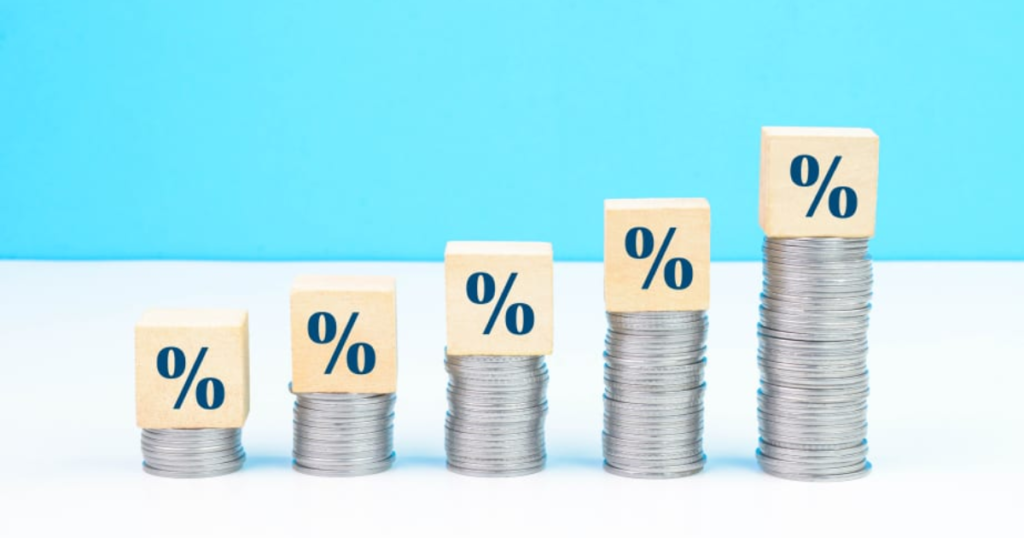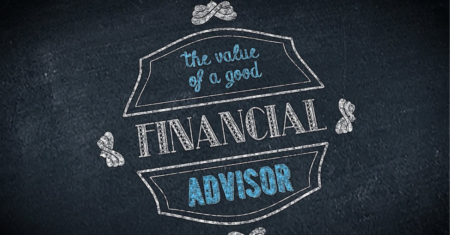
Saving money is a smart and responsible thing to do, but it can also be frustrating when you see your hard-earned cash sitting in a low-interest account that barely keeps up with inflation. If you want to make the most of your savings, you need to look for a high interest savings account that can offer you a better return on your money.
But how do you find the best high interest savings account for your needs? There are many factors to consider, such as the interest rate, the minimum deposit, the withdrawal restrictions, the fees and charges, and the safety of your money. In this blog post, we will guide you through the process of comparing different high interest savings accounts and help you choose the one that suits you best.
Related articles
1- Principal Financial Group 401k
2- Certified Financial Advisor
What is a high interest savings account?
A high interest savings account is a type of savings account that typically pays a higher rate of interest than a current account or an easy access savings account. The catch is that a high interest savings account might come with certain conditions, such as a relatively high minimum deposit or having to give a notice period before withdrawing your money.
The advantage of a high interest savings account is that it can help you grow your savings faster and reach your financial goals sooner. For example, if you have £10,000 in a current account that pays 0.1% interest, you will earn £10 in a year. But if you put the same amount in a high interest savings account that pays 5% interest, you will earn £500 in a year. That’s a difference of £490!
How do high interest savings accounts work?
High interest savings accounts work in a similar way as other savings accounts. You deposit money into them and over time your money accrues interest and your balance grows. The idea behind these accounts is that the longer you leave your money in them, the better returns you will achieve.
The interest rate is set by the account provider, which is why it is important to shop around and compare different offers. The interest rate can be fixed or variable, meaning that it can stay the same or change over time depending on the market conditions. Some accounts may also offer a bonus rate for an introductory period and then drop to a lower rate afterwards.
When you need to make a withdrawal, you contact the provider and follow their instructions. However, you may face charges or penalties if you need to withdraw the money before your notice period is up or if you exceed the number of withdrawals allowed per year. Some accounts may also have minimum or maximum balances that you need to maintain to earn the advertised interest rate.
How to choose the best high interest savings account for you
The best high interest savings account for you will depend on how much you want to save, what you are saving for, and whether you need easy access to your money. There are several things to consider when choosing an account:
- Interest rate: How much you stand to earn in interest is one of the most important considerations. You want to look for an account that offers a competitive and consistent rate that beats inflation and other alternatives. You also want to check whether the rate is fixed or variable and whether it includes a bonus or promotional period.
- Minimum or maximum deposits: Depending on the provider, you might need to make a minimum initial deposit to open the account or pay in regular amounts to keep it active. Conversely, if your savings exceed any maximum balance, you may need to look elsewhere or split your money into different accounts.
- Notice period: How quickly might you need to access your savings? If you are saving for an emergency fund or a short-term goal, you might want an account that allows you to withdraw your money at any time without charges. If you are saving for a long-term goal or can afford to lock away your money for a while, you might benefit from an account that requires a notice period in exchange for a higher interest rate.
- Fees, charges and restrictions: Check whether there are any other fees or charges associated with the account and factor them in against the interest earned. For example, some accounts may charge for transfers, statements, overdrafts or closing the account. Also check whether there are any restrictions on how often or how much you can withdraw from the account.
- Safety of your money: Make sure that your money is protected by the Financial Services Compensation Scheme (FSCS), which covers up to £85,000 per person per bank or building society in case they go bust. Some banks may share their FSCS limit with other brands under the same umbrella group, so check this before opening an account.
Where to find the best high interest savings accounts
There are many sources where you can find information about high interest savings accounts, such as comparison websites, financial magazines, newspapers and blogs. However, not all of them may be up-to-date or comprehensive, so it is advisable to do your own research and verify any information before making a decision.
One of the best ways to find the best high interest savings accounts is to use a web search engine, such as Bing, which can provide you with the latest and most relevant results from various sources. For example, if you search for “high interest savings account” on Bing, you will get a list of web pages, images and news articles that can help you compare different accounts and offers. You can also refine your search by adding keywords, such as the country, the currency, the interest rate or the provider name.
Here are some examples of web pages that you can find on Bing that can help you find the best high interest savings account for your money:
- Best savings accounts: 5.1% easy access or 6.2% fixed rates: This page from MoneySavingExpert.com provides a comprehensive guide on the top savings accounts in the UK, including easy access, notice and fixed-rate accounts. It also explains how to choose the right account for you, how to maximise your interest and how to protect your money.
- High interest savings accounts guide | MoneySuperMarket: This page from MoneySuperMarket.com provides a simple guide on how to find the best high interest savings account in the UK. It also compares some of the top offers from different providers and gives tips on how to save more effectively.
- Best High-Interest Savings Accounts in Canada for 2023: This page from NerdWallet.com provides a summary of the best high-interest savings accounts in Canada for 2023, based on factors such as the interest rate, the minimum deposit, the fees and charges and the FSCS protection. It also gives some advice on how to choose an account that suits your needs and goals.
- 11 Best High-Interest Accounts of September 2023 – NerdWallet: This page from NerdWallet.com provides a list of the best high-interest accounts in the US for September 2023, including savings accounts and certificates of deposit (CDs). It also explains how these accounts work, how to compare them and how to open them online.
- Best High-Yield Savings Accounts Of September 2023 – Forbes: This page from Forbes.com provides a list of the best high-yield savings accounts in the US for September 2023, based on factors such as the annual percentage yield (APY), the minimum deposit, the fees and charges and the FSCS protection. It also gives some tips on how to boost your savings rate and avoid common pitfalls.
How do I open a high interest savings account?
o open a high interest savings account, you need to follow these steps:
- Shop for the top rates. You can use a web search engine, such as Bing, to compare different offers from various banks and credit unions. Look for an account that offers a competitive and consistent interest rate, suits your needs and preferences, and protects your money with the Financial Services Compensation Scheme (FSCS) or equivalent.
- Choose the institution that’s best for you. You can open a high interest savings account online or in person, depending on the provider. You may need to meet certain eligibility criteria, such as being a current account customer, a UK resident, or over 16 years old.
- Complete the account application. You will need to provide some personal and financial information, such as your name, address, date of birth, national insurance number, income, and existing bank details. You may also need to verify your identity and address with some documents, such as your passport, driving licence, or utility bill.
- Fund your new account. You will need to make a minimum initial deposit to open the account, which can vary depending on the provider and the type of account. You can transfer money from your existing bank account or use another method, such as cash or cheque.
- Enroll in online banking and download the app. This will allow you to manage your account online and access it anytime and anywhere. You can check your balance, view your transactions, make deposits and withdrawals, set up alerts and e-statements, and more.
- Establish beneficiaries. You can nominate one or more people who will inherit your money in case you die. This can help avoid probate and ensure that your wishes are respected.
- Turn on alerts and e-statements. This will help you keep track of your account activity and avoid any fees or charges. You can also opt for paperless statements to save paper and reduce clutter.
- Link any additional transfer accounts. This will allow you to move money between your high interest savings account and other accounts that you have with the same or different providers. This can help you maximise your interest earnings and manage your cash flow.
Finding the best high interest savings account for your money can be a rewarding and satisfying experience, as it can help you achieve your financial goals faster and easier. However, it can also be a challenging and confusing process, as there are many factors to consider and compare.
The key is to do your research, shop around and use reliable sources of information, such as web search engines like Bing, which can provide you with the latest and most relevant results from various sources. By doing so, you can find an account that offers you a competitive and consistent interest rate, suits your needs and preferences, and protects your money. Happy saving!
About the Author






0 Comments